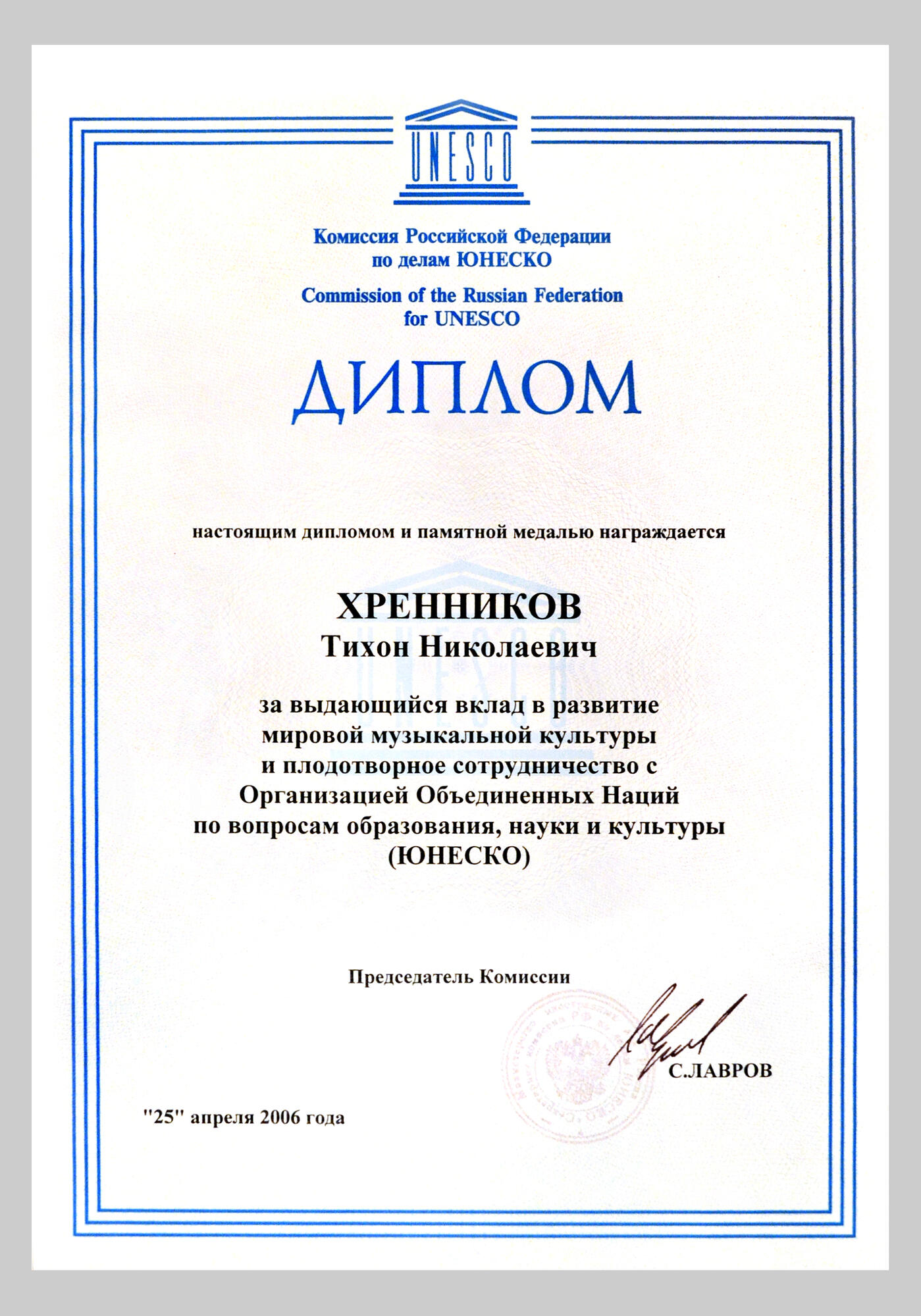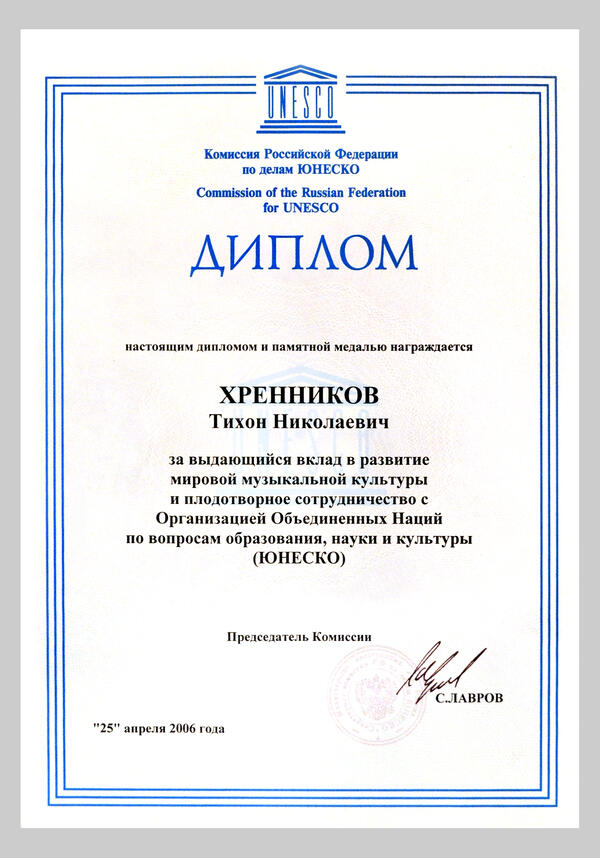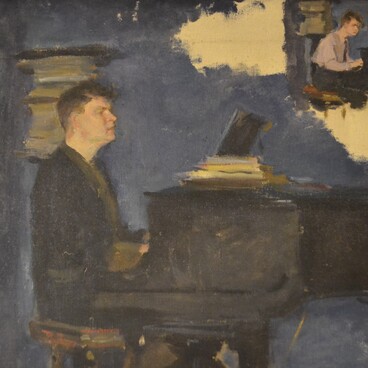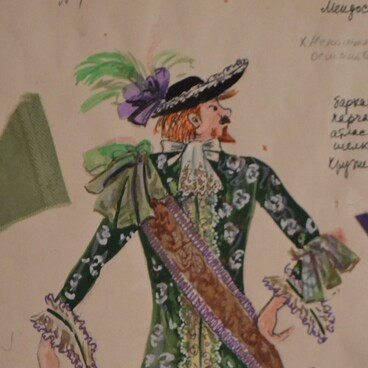In 2006, composer Tikhon Khrennikov received a UNESCO diploma and a commemorative silver medal for ‘an outstanding contriu.tion to the development of world musical culture and fruitful cooperation with the UNO’. This is one of the last significant awards that the musician received during his lifetime.
UNESCO is a division of the United Nations Organization (UNO) that deals with education, science and the arts. It was founded in 1945. The main goal of the institution is to strengthen peace and international security, as well as to support cooperation between peoples in the field of cultural heritage.
UNESCO assigns a special role to music as an art that is understandable to everyone without translation. Preservation and distribution of musical works is one of the key tasks of the organization.
Khrennikov was at the head of the Union of Composers of the USSR from 1948 to 1991 and organized music festivals and competitions throughout the country. The composer believed that it is important to engage in education and said that ‘there is no state without culture — just one name’. For a long time he collaborated with UNESCO both as a world-renowned musician as well as a public figure.
Due to his indisputable authority in musical circles, the composer solved many difficult issues, including the international ones. For example, there was no peace treaty between the USSR and Japan, but famous foreign musicians were on tour in the capital, and Japanese students studied at the Moscow Conservatory. Also, musicians from all over the world came to participate in the prestigious Tchaikovsky music competition, notably from Japan.
Khrennikov became one of the first musicians in the Soviet Union to receive the UNESCO International Music Council Prize in 1977. 26 years later, in 2003, the composer received a diploma and a Mozart medal, and the third award was presented to him in 2006 in the Kremlin. Khrennikov received his diploma from the hands of Sergei Lavrov, head of the Russian Federation Commission for the UNESCO affairs, who now holds the post of Russian Foreign Minister. The diploma was marked with his signature in the lower right corner.
UNESCO is a division of the United Nations Organization (UNO) that deals with education, science and the arts. It was founded in 1945. The main goal of the institution is to strengthen peace and international security, as well as to support cooperation between peoples in the field of cultural heritage.
UNESCO assigns a special role to music as an art that is understandable to everyone without translation. Preservation and distribution of musical works is one of the key tasks of the organization.
Khrennikov was at the head of the Union of Composers of the USSR from 1948 to 1991 and organized music festivals and competitions throughout the country. The composer believed that it is important to engage in education and said that ‘there is no state without culture — just one name’. For a long time he collaborated with UNESCO both as a world-renowned musician as well as a public figure.
Due to his indisputable authority in musical circles, the composer solved many difficult issues, including the international ones. For example, there was no peace treaty between the USSR and Japan, but famous foreign musicians were on tour in the capital, and Japanese students studied at the Moscow Conservatory. Also, musicians from all over the world came to participate in the prestigious Tchaikovsky music competition, notably from Japan.
Khrennikov became one of the first musicians in the Soviet Union to receive the UNESCO International Music Council Prize in 1977. 26 years later, in 2003, the composer received a diploma and a Mozart medal, and the third award was presented to him in 2006 in the Kremlin. Khrennikov received his diploma from the hands of Sergei Lavrov, head of the Russian Federation Commission for the UNESCO affairs, who now holds the post of Russian Foreign Minister. The diploma was marked with his signature in the lower right corner.



